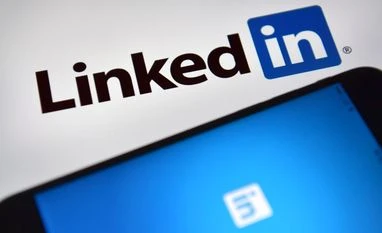LinkedIn bets on skills over degrees as future labour market's currency
While over 80% of employers believe they should hire based on skills rather than degrees, more than half say they are still hiring college grads because it feels less risky
)
Photo: Bloomberg
Listen to This Article
By Jo Constantz
As the world of work transforms, LinkedIn is betting that the way employers hire and the way people find jobs will also radically change in the years and decades ahead.
LinkedIn Inc., the popular job-networking site, sees a future in which employers will be willing to look beyond long-established entry requirements such as college degrees and prior job titles to focus instead on an applicant's proven skills whether that be data analysis, leadership or storytelling.
LinkedIn is anticipating the direction companies themselves have indicated they've wanted to move in.
While over 80% of employers believe they should hire based on skills rather than degrees, more than half say they are still hiring college grads because it feels less risky. That’s according to a survey conducted last summer by workforce development nonprofits American Student Assistance and Jobs for the Future.
Also Read
“Skills-based hiring is the great white whale, the holy grail of the labor market,” said Joseph Fuller, management professor at Harvard Business School.
Since emerging from the dot-com bust, LinkedIn has already helped move the needle on what's acceptable behavior in the job market. It's no longer considered disloyal, for instance, for an employee to create a profile allowing recruiters to scout — and hire — talented people not actively looking for another job.
“Twenty years ago, either you were actively looking for work or you were not looking for work,” said Dan Shapero, LinkedIn’s chief operating officer.
The site, which turned 20 in May, has amassed more than 930 million members worldwide, becoming a place where CEOs and workers alike celebrate milestones, air grievances and build networks — altering how some people and companies search for jobs and job candidates. Last year, the platform accounted for roughly 6% of parent Microsoft Corp.’s almost $200 billion in revenue, a small but growing part of sales.
LinkedIn launched a skills-matching feature in February, allowing users to see how the skills a job calls for might align with their own strengths. There are some positive early signs: More than 45% of recruiters on LinkedIn now search for candidates using skills data, according to the company. Meanwhile, LinkedIn is building artificial intelligence into the platform, with the goal of making the match between job seekers and employers more efficient.
Skills-first hiring as an ideal has a long history. It’s considered a way to expand economic opportunity, especially for those without college degrees. But so far there hasn’t been much large-scale progress in that direction.
“Skills has been a conversation that has been going on for years, for decades,” said Aneesh Raman, a LinkedIn vice president. “In those conversations were often the same people: policymakers, academics, nonprofits. Missing from those conversations, almost all of them, were employers.”
The exceedingly tight job market of the past two years, however, has forced companies to widen their search. Employers have now finally entered the room, he said. When it comes to skills-based hiring, Raman said, “Employers are no longer asking: ‘What is this?’ They're asking, ‘How do I do this?’”
LinkedIn hopes to provide the answer, but it won't be easy.
For starters, it’s one thing to say that you have a particular skill, and another to prove it. “Outside of certain industries, like construction and the trades, we don’t have licenses that provide a representation of an acquired skill that employers can count on,” said Harvard’s Fuller, who penned a piece titled “Skills-Based Hiring Is on the Rise” in the Harvard Business Review last year. There’s also no shared language or standard classification system for skills and that risks mismatches between the ways different skills are described in job posts and resumes.
While technical skills like coding are relatively easy to test for, “soft skills,” like communication or teamwork, can be especially difficult to validate. For instance, you say you’re a good listener, but are you, really? That’s one reason employers have leaned heavily on college degrees as a proxy, albeit an imperfect one, for all sorts of social competencies. Some progress has been made, Fuller said, by using structured interviewing and behavioral psychology assessments, but companies’ capacity on this front is still limited.
The wild card for LinkedIn may be its ability to tap into Microsoft's AI progress. That might help the site surface often-overlooked candidates, like those who lack a four-year degree or have a criminal conviction, and successfully match them with employers, Fuller said. “Perhaps the deus ex machina here is AI.”
More From This Section
Topics : LinkedIn labour market degree
Don't miss the most important news and views of the day. Get them on our Telegram channel
First Published: Jun 09 2023 | 11:25 PM IST
